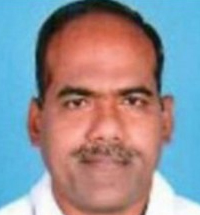Mangaluru, Jan 5: In a frightening incident, a leopard which was trapped in a snare attacked and injured three persons in its successful bid to escape Balpa village in Sullia taluk of Dakshina Kannada.
The incident occurred on Thursday when around 15 forest staff approached the trapped leopard to tranquilize it with a dart. The leopard, however, managed escape.
While running away, it attacked a villager Balakrishna, aged about 70, who was working in the nearby plantation. He sustained injuries on his upper lips.
He was rushed to a hospital in Sullia and then was shifted to the Government Wenlock hospital for further treatment. He is learnt to be out of danger.
After this incident, the forest department kept a tab and tracked the leopard using a drone.
According to V Karikalan, deputy conservator of forest (DCF), Dakshina Kannada, Between 5pm to 5.30pm on a tip off that leopard was spotted near a bush, the forest department tried to approach it again and the animal jumped on the officials, injuring Assistant Conservator of Forests Austin and forest guard Divith.
The injured were rushed to a nearby hospital and then taken to Mangaluru for further treatment. They are learnt to be out of danger.
Meanwhile, the department is continuing combing in the village and surrounding areas. Three teams consisting of three RFOs and 10 Dy RFOs, supported by doctors are on the field. The forest department has also placed two leopard capturing cages in the area. Night patrolling will continue and public announcements are being made.





Comments
Expressing the views is also a art.
Sometimes you can't say direct truth, it got to be twisted without changing the meaning. When you say, the people should be convinced of their blind practice, social errors, superstitious acts.
That is the art of speech.
With this you can correct the mistakes, errors of the society.
Add new comment